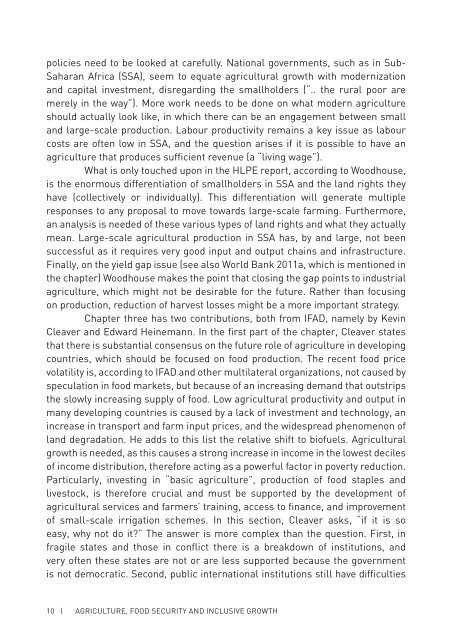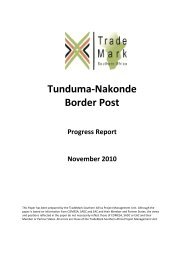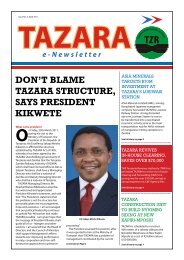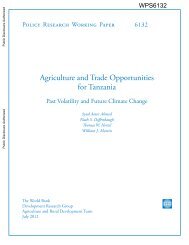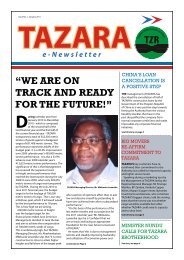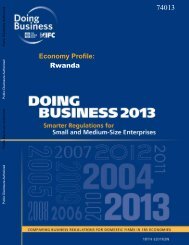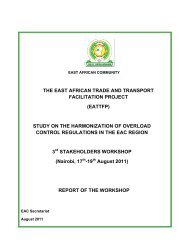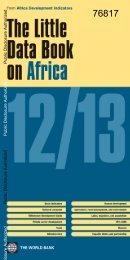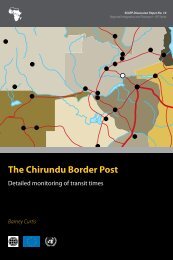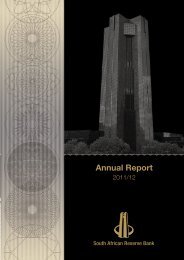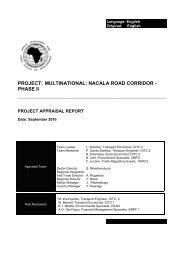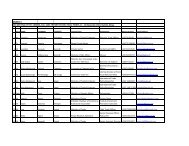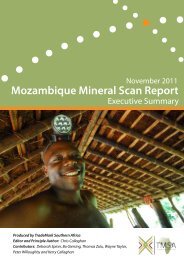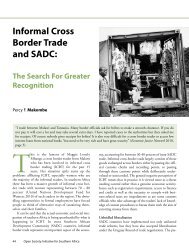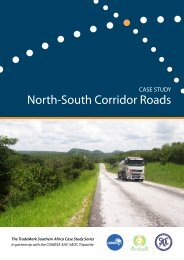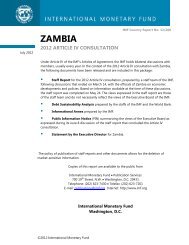Agriculture, Food Security and Inclusive Growth - SID Netherlands ...
Agriculture, Food Security and Inclusive Growth - SID Netherlands ...
Agriculture, Food Security and Inclusive Growth - SID Netherlands ...
Create successful ePaper yourself
Turn your PDF publications into a flip-book with our unique Google optimized e-Paper software.
policies need to be looked at carefully. National governments, such as in Sub-<br />
Saharan Africa (SSA), seem to equate agricultural growth with modernization<br />
<strong>and</strong> capital investment, disregarding the smallholders (“.. the rural poor are<br />
merely in the way”). More work needs to be done on what modern agriculture<br />
should actually look like, in which there can be an engagement between small<br />
<strong>and</strong> large-scale production. Labour productivity remains a key issue as labour<br />
costs are often low in SSA, <strong>and</strong> the question arises if it is possible to have an<br />
agriculture that produces sufficient revenue (a “living wage”).<br />
What is only touched upon in the HLPE report, according to Woodhouse,<br />
is the enormous differentiation of smallholders in SSA <strong>and</strong> the l<strong>and</strong> rights they<br />
have (collectively or individually). This differentiation will generate multiple<br />
responses to any proposal to move towards large-scale farming. Furthermore,<br />
an analysis is needed of these various types of l<strong>and</strong> rights <strong>and</strong> what they actually<br />
mean. Large-scale agricultural production in SSA has, by <strong>and</strong> large, not been<br />
successful as it requires very good input <strong>and</strong> output chains <strong>and</strong> infrastructure.<br />
Finally, on the yield gap issue (see also World Bank 2011a, which is mentioned in<br />
the chapter) Woodhouse makes the point that closing the gap points to industrial<br />
agriculture, which might not be desirable for the future. Rather than focusing<br />
on production, reduction of harvest losses might be a more important strategy.<br />
Chapter three has two contributions, both from IFAD, namely by Kevin<br />
Cleaver <strong>and</strong> Edward Heinemann. In the first part of the chapter, Cleaver states<br />
that there is substantial consensus on the future role of agriculture in developing<br />
countries, which should be focused on food production. The recent food price<br />
volatility is, according to IFAD <strong>and</strong> other multilateral organizations, not caused by<br />
speculation in food markets, but because of an increasing dem<strong>and</strong> that outstrips<br />
the slowly increasing supply of food. Low agricultural productivity <strong>and</strong> output in<br />
many developing countries is caused by a lack of investment <strong>and</strong> technology, an<br />
increase in transport <strong>and</strong> farm input prices, <strong>and</strong> the widespread phenomenon of<br />
l<strong>and</strong> degradation. He adds to this list the relative shift to biofuels. Agricultural<br />
growth is needed, as this causes a strong increase in income in the lowest deciles<br />
of income distribution, therefore acting as a powerful factor in poverty reduction.<br />
Particularly, investing in “basic agriculture”, production of food staples <strong>and</strong><br />
livestock, is therefore crucial <strong>and</strong> must be supported by the development of<br />
agricultural services <strong>and</strong> farmers’ training, access to finance, <strong>and</strong> improvement<br />
of small-scale irrigation schemes. In this section, Cleaver asks, “if it is so<br />
easy, why not do it” The answer is more complex than the question. First, in<br />
fragile states <strong>and</strong> those in conflict there is a breakdown of institutions, <strong>and</strong><br />
very often these states are not or are less supported because the government<br />
is not democratic. Second, public international institutions still have difficulties<br />
10 | AGRICULTURE, FOOD SECURITY AND INCLUSIVE GROWTH


